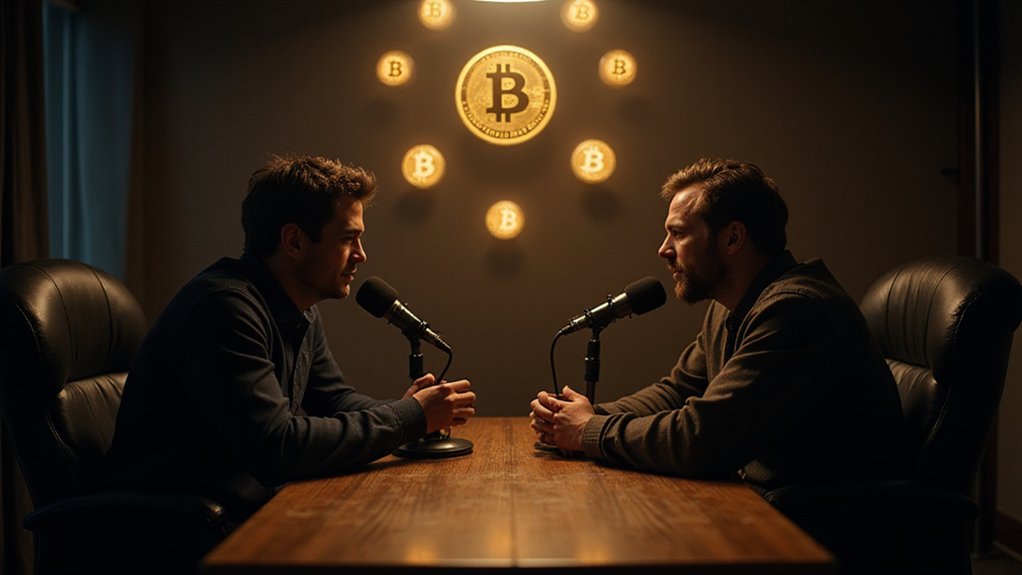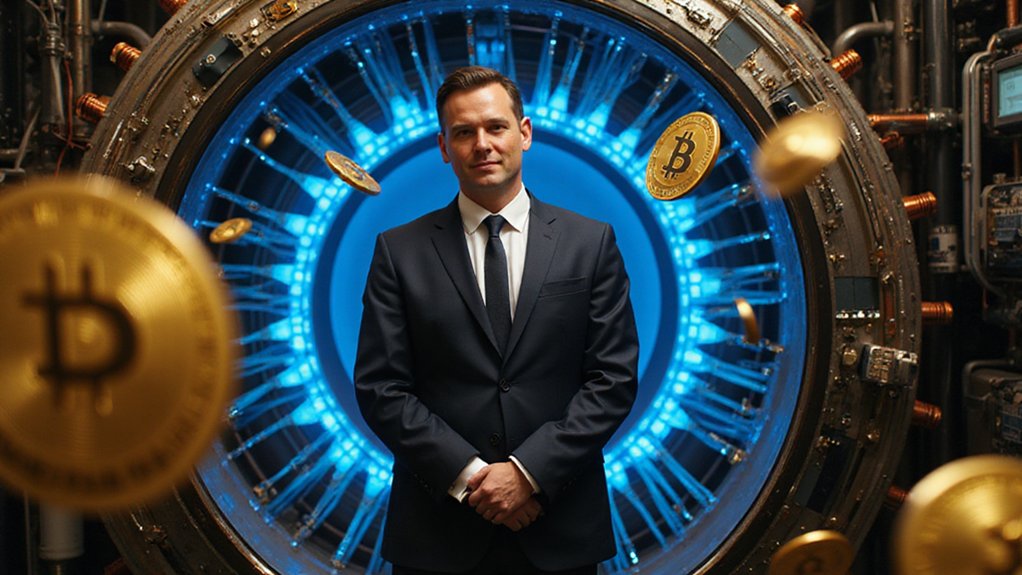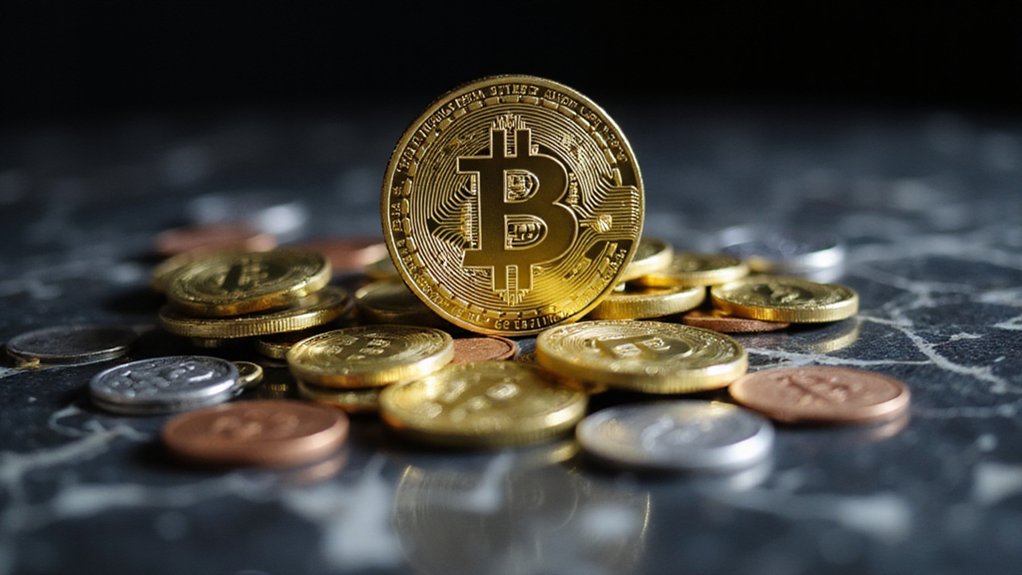A digital gauntlet has been thrown.
Michael Saylor, the Bitcoin maximalist whose MicroStrategy holds 580,250 BTC worth approximately $60.47 billion, has publicly challenged Joe Rogan to explore Bitcoin’s depths on the world’s most influential podcast platform.
The invitation emerged through a direct Twitter callout: “Hey @joerogan, let’s talk about Bitcoin.”
Simple words carrying enormous implications for cryptocurrency’s mainstream narrative.
Saylor’s challenge responds to fan solicitations for new Rogan guests, though the podcaster himself remains conspicuously silent on the proposal.
The Bitcoin community’s reaction borders on euphoric.
“The interview would shatter the internet,” proclaimed The Bitcoin Therapist, while analyst Kook predicted Saylor would “Bitcoin pill Joe Rogan.”
Brandon MacDougal confessed he’d watch Rogan for the first time should Saylor appear—a sentiment echoing across crypto circles where anticipation reaches fever pitch.
Rogan’s Bitcoin history spans over a decade, featuring early conversations with Andreas Antonopoulos when prices traded below $1,000.
His October 2023 declaration calling Bitcoin “the most fascinating crypto” and likely future universal currency suggests receptive ground for Saylor’s evangelical message.
Yet timing proves intriguing.
Saylor describes current markets as witnessing a “rotation” where short-term holders exit while long-term investors accumulate—precisely MicroStrategy’s strategy.
The company recently purchased 4,020 BTC for $427 million, maintaining its position as the world’s largest corporate Bitcoin holder through relentless capital raising and strategic accumulation.
With Bitcoin’s market cap now surpassing $1.7 trillion and its price hovering around $87,645.62, such a conversation could reach audiences at a pivotal moment in cryptocurrency’s evolution.
This potential conversation represents more than celebrity crossover; it embodies Bitcoin’s cultural momentum reaching mainstream consciousness.
Rogan’s massive audience could amplify institutional adoption narratives while Saylor’s corporate success story provides tangible proof of Bitcoin’s investment thesis.
The challenge remains unanswered, though media coverage from Bitbo, Cointelegraph, and AInvest amplifies speculation.
Whether Rogan accepts this digital dare could determine if millions of listeners receive their first serious Bitcoin education from corporate America’s most committed cryptocurrency advocate.
Should this conversation materialize, expect nothing less than a masterclass in Bitcoin theology delivered to the masses—assuming Rogan’s legendary curiosity proves match for Saylor’s unwavering conviction.









